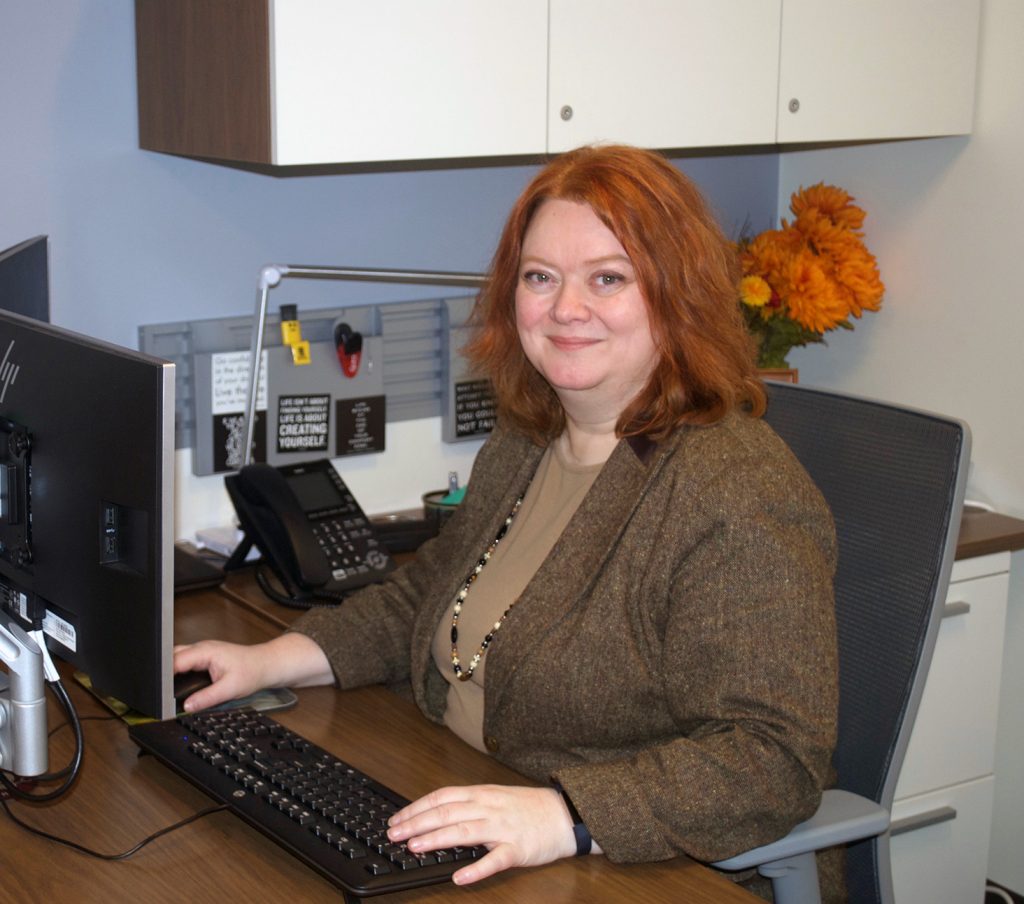A Q&A with new Career Services Director Sheilah Howard

‘Many of the people who seek career assistance now often need help the most,’ Howard said of the current low unemployment rate
Sheilah Howard, who previously served as JFCS’ IT Pathways Program Manager and Data Optimization Manager, has been named the agency’s Career Services Director. She recently spoke about how her background has prepared her for this position and what some of the opportunities and challenges are today in addressing the needs of job-seekers.
Why did the Career Services Director position appeal to you?
One of the things that excited me about joining JFCS originally four years ago was the number of Career Services programs offered here, that reach such a variety of needs in the communities we serve. By moving into the role of Career Services Director, I have this great opportunity to work with all of these programs and develop relationships with our community partners for each of them. We are so fortunate to have experienced Program Managers like Cindy Uran (Vocational Rehab/Minnesota Family Investment Program) and Leah Temkin (Dislocated Worker Program/Platinum/IT Pathways) here at JFCS, and I look forward to tapping into their insights as I learn the ropes.
You have served as JFCS’ IT Pathways Program Manager and Data Optimization Manager – how have those roles prepared you for this position?
As the Program Manager for IT Pathways for the past three years, I gained experience in managing a Career Services program with a complex funding model, which heavily relies on external partnerships for our participants to be successful. I have really enjoyed the opportunity to build relationships in the community as we have collaborated to build and grow this program. Employment Counselors Sue Thompson and Marah Johnson really do the heavy lifting managing the day-to-day of IT Pathways, and both have been with the program for three years. Their excellent work allowed me to spend a good amount of my time in the role of Data Optimization Manager.
This was an exciting opportunity for me to work with directors and program managers from across the whole agency on defining and implementing their strategic plans and using data in new ways to measure their progress towards their goals. During that time, I got a crash course in all of JFCS’ programs and strategic plans, goals and challenges in a way that I otherwise would not have had. It was better than any onboarding plan could have been.
What are some of the challenges and opportunities for career services programs in today’s environment?
When unemployment is low, and you see “Help Wanted” signs everywhere, people sometimes ask me if career services programs are even necessary. The truth is, many of the people who seek career assistance now often need help the most. They often experience the most barriers to achieving and maintaining employment, including issues with transportation, child care, housing stability, health concerns, lack of credential, and other challenges.
We are here to help people find appropriate, sustaining work not only for the income it provides, but because employment can also help people find social connections, a sense of purpose, and a feeling of accomplishment. Some of our funding is driven by priorities that are set by funders, including the state of Minnesota, which has a new governor and newly-named commissioner for the Minnesota Department of Employment and Economic Development (DEED). As we learn what their priorities will be going forward, we will have new opportunities and challenges as we adjust to these changes.
What are your goals for JFCS Career Services in the long-term?
If there’s one thing we can count on, it’s change. I would like our department to be positioned to react quickly to the opportunities and challenges that come to us. To do that, we will need to retain our high-quality staff and foster their professional growth in multiple areas. I would also like us to utilize data more fully in managing our daily operations as well as our long-term planning. But I’m the data nerd, so that’s probably not surprising.
